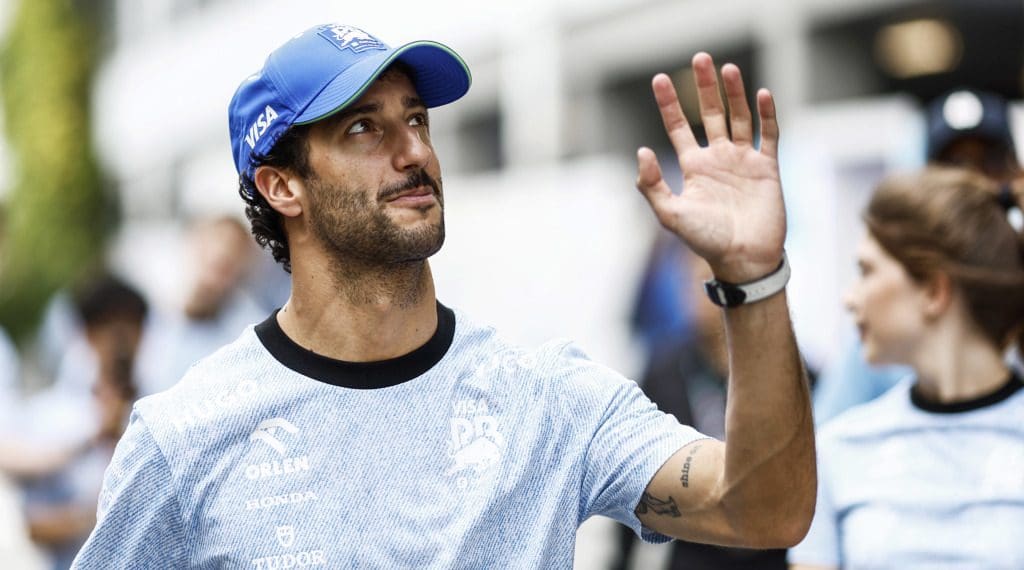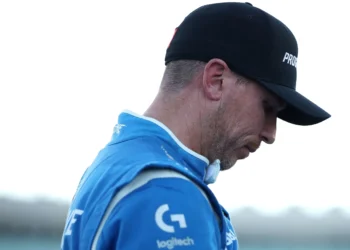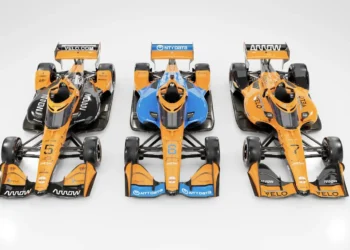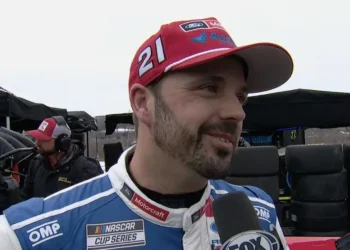Daniel Ricciardo’s much-anticipated return to Formula 1 ended in disappointment, with the Australian star struggling to recapture his best form during the 2024 season. Despite flashes of brilliance, Ricciardo’s comeback with Racing Bulls (formerly AlphaTauri) was cut short after persistent struggles to compete with teammate Yuki Tsunoda and the new wave of young talent.
Racing Bulls Racing Director Alan Permane has now shed light on Ricciardo’s challenges, pointing to overthinking and second-guessing as key factors behind his inability to perform consistently.
“Overthinking Things”: The Undoing of Ricciardo
After stepping in mid-2023, Ricciardo had hoped to use Racing Bulls as a springboard to rejoin Red Bull Racing, the team with which he achieved some of his greatest successes. However, the reality of his 2024 season fell far short of expectations. Despite occasional strong performances, such as a fourth-place finish in the Miami Sprint, Ricciardo was unable to sustain a competitive edge.
Permane believes Ricciardo’s vast experience became a double-edged sword.
“I was certainly worried that he was overthinking things,” Permane explained. “He was concerned about the tyres, that they couldn’t cope with the speed he would be asking of them. It felt like he was using his huge experience to second-guess things that potentially weren’t correct, because Yuki wasn’t and he was driving as quick as he could—and it was working.”
This tendency to overanalyze seemingly derailed Ricciardo’s natural instincts, a hallmark of his previous success.
Flashes of Brilliance, But No Consistency
Ricciardo’s 2024 campaign was marked by inconsistency. Moments like his strong showing in Miami offered glimpses of the Ricciardo of old, but they were often followed by puzzling downturns.
“That was a tough time,” Permane recalled. “He put it fourth on the grid in Miami, and you think, ‘Ah, it’s all clicked.’ That was the Daniel I knew at Renault. Then, in the same weekend, he qualifies 18th for the main race. It was a bit of a mystery.”
Despite the team’s efforts, including a chassis change requested by Ricciardo, his form never stabilized, leading Racing Bulls to part ways with him before the season ended.
The Rise of the Next Generation
Ricciardo’s struggles coincided with the rise of a new generation of F1 talent. Liam Lawson, who replaced Ricciardo at Racing Bulls, quickly impressed and has since been promoted to partner Max Verstappen at Red Bull Racing.
Young drivers like Oliver Bearman at Haas and Franco Colapinto at Williams also thrived in 2024, further highlighting the growing gap between seasoned veterans and the sport’s emerging stars.
“Franco looked amazing in his first few races,” Permane said. “But sustaining that level week in, week out—that’s the hard thing.”
A Challenging Landscape for Veterans
Ricciardo’s experience reflects broader challenges faced by established drivers adapting to F1’s current cars. While Fernando Alonso and Lewis Hamilton have occasionally showcased their brilliance, both have also encountered difficulties in maintaining consistency.
Permane noted that the intense demands of modern F1—including engineering complexities and relentless PR commitments—can make it harder for older drivers to stay competitive.
“There’s all sorts of PR stuff which comes with Formula 1 now, and I’m pretty sure these young guys aren’t used to it, so there’s distractions everywhere,” Permane said.
What’s Next for Ricciardo?
As Racing Bulls pivots to its youthful lineup, Ricciardo’s future in F1 remains uncertain. The 34-year-old’s departure underscores the sport’s increasingly unforgiving nature, where consistent performance and adaptability are paramount.
While Ricciardo’s charm and past achievements have made him a fan favorite, his comeback shows that even the most experienced drivers aren’t immune to the evolving challenges of F1. Whether he finds a way back to the grid or explores new opportunities outside the sport, Ricciardo’s story serves as both a cautionary tale and a reminder of F1’s relentless competitiveness.










